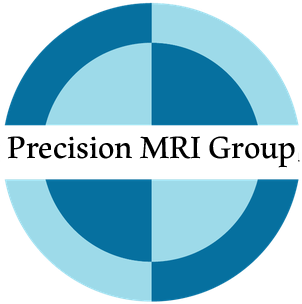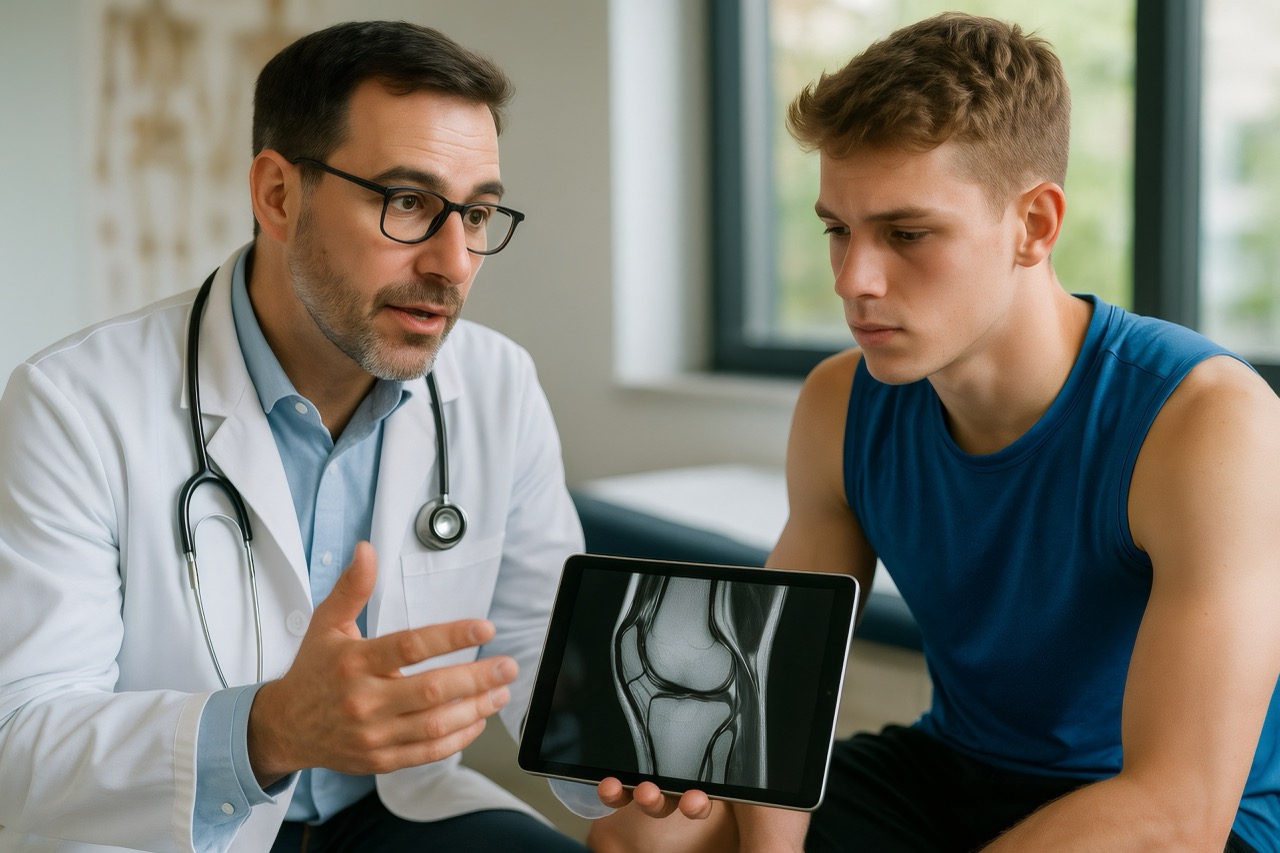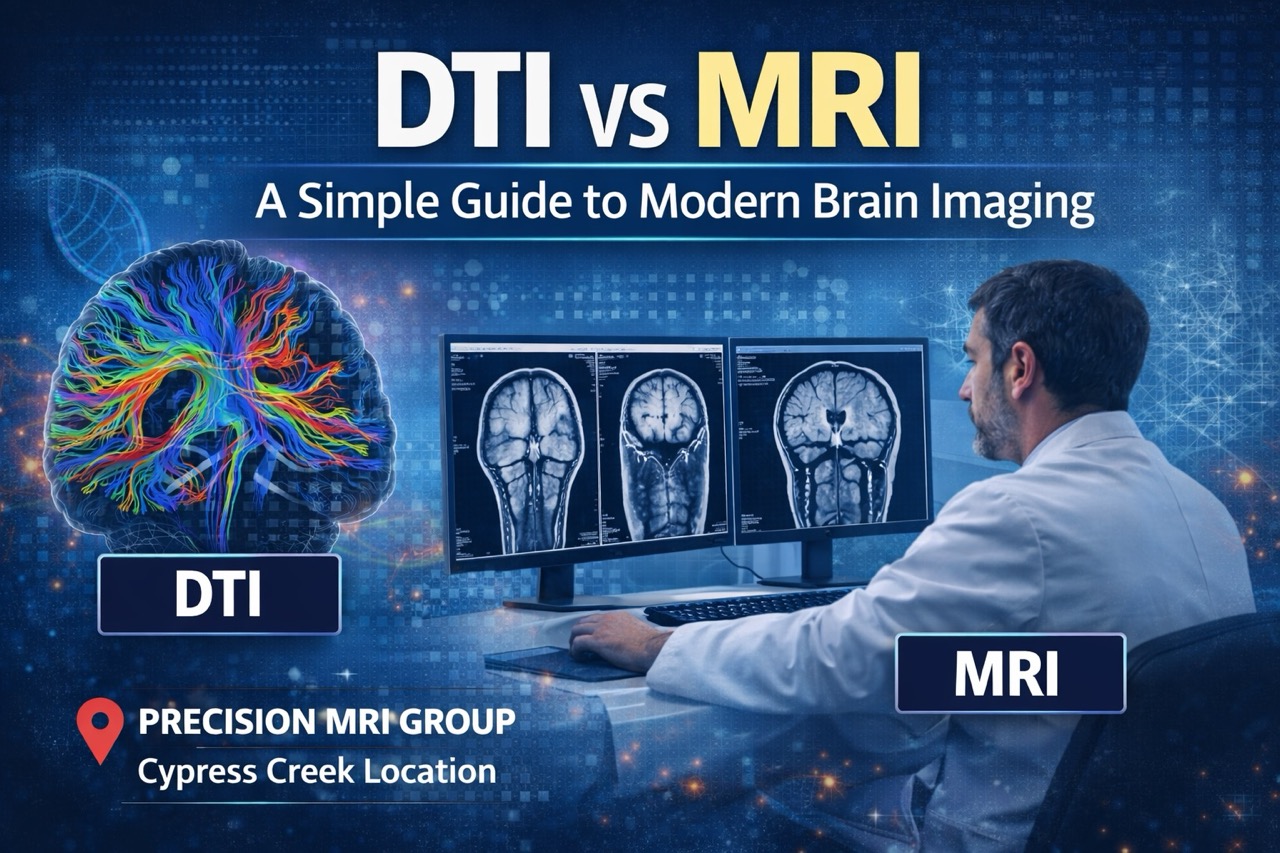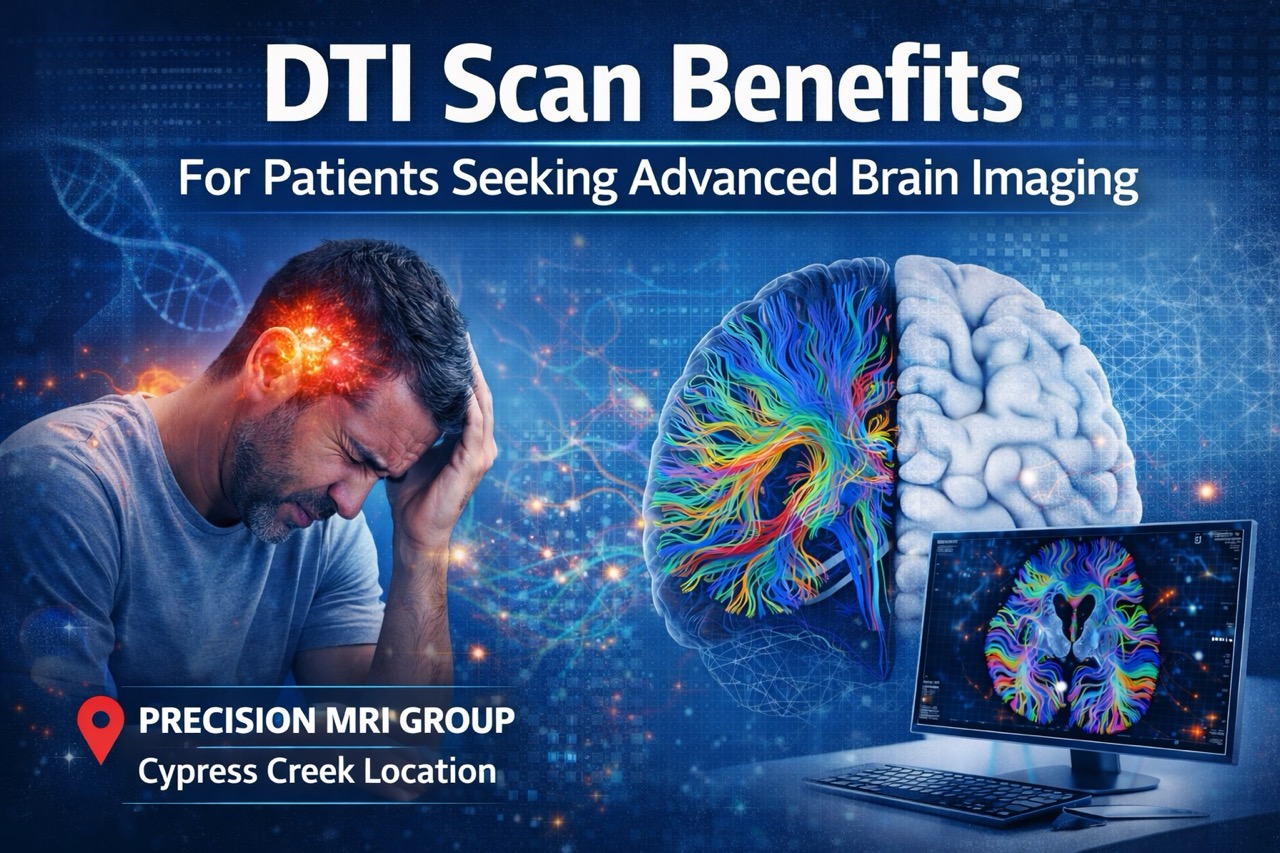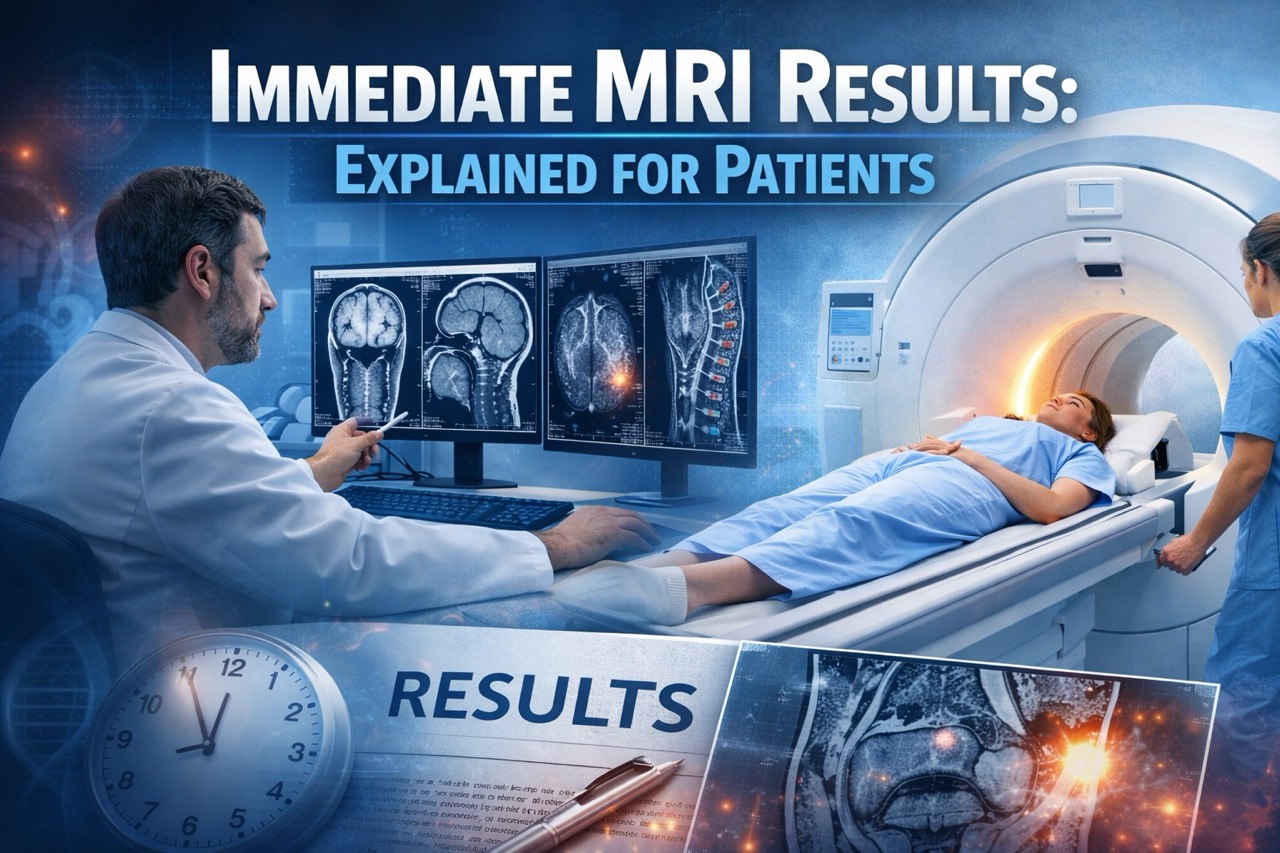Sports Medicine MRI: Essential Imaging for Injury Diagnosis
Sports injuries can sideline athletes at any level of competition. Professional players, college athletes, and weekend joggers all face the same challenge when injury strikes. One day you’re running freely, and the next day every step brings pain. Getting back to your sport requires an accurate diagnosis of what went wrong. Sports medicine MRI provides the detailed imaging that doctors need to identify injuries precisely. Furthermore, this advanced technology reveals soft tissue damage that other tests might miss completely.
At Precision MRI Group, we understand that athletes need answers quickly. Our fast turnaround times and comfortable scanning environment help you move forward with treatment. Moreover, accurate diagnosis is the foundation of effective recovery and safe return to play.
Why Diagnostic Imaging Matters in Sports Medicine
Physical exams can detect obvious injuries like swelling or limited range of motion. However, many sports injuries involve internal structures that doctors cannot see or feel. Diagnostic imaging sports medicine provides the visual evidence needed for confident treatment decisions.
X-rays show bone fractures but miss ligament tears and muscle strains completely. Ultrasound offers limited views of surface tissues without depth or comprehensive coverage. Additionally, relying on physical examination alone can lead to missed diagnoses and delayed treatment.
MRI technology reveals the full extent of soft tissue injuries with remarkable detail. Doctors can see torn ligaments, damaged cartilage, and muscle injuries that affect performance. This precision leads to treatment plans that address the actual problem rather than symptoms. MRI for athletes Florida services help sports medicine specialists create recovery plans based on facts. Consequently, athletes return to competition safely with lower risk of reinjury or complications.
Common Sports Injuries That Require MRI
Sports injuries frequently involve soft tissues like muscles, tendons, and ligaments that need detailed imaging. Physical examination can suggest certain injuries, but MRI confirms the diagnosis and severity. Furthermore, early detection of serious injuries prevents long-term damage and chronic problems. Sports medicine MRI helps diagnose these common athletic injuries:
- Muscle strains and tears – Partial or complete muscle ruptures that require specific treatment protocols for proper healing.
- Ligament injuries (ACL, MCL) – Knee ligament damage that affects stability and requires surgical or conservative management decisions.
- Tendon damage (Achilles, rotator cuff) – Overuse injuries or acute tears that need immediate evaluation for treatment planning.
- Cartilage and meniscus tears – Joint surface damage that causes pain, locking, and instability during athletic activities.
- Stress fractures – Small bone cracks from repetitive impact that don’t always show on X-rays initially.
- Joint issues (labral tears, bursitis) – Shoulder and hip problems that limit performance and cause persistent pain.
MRI for sports injuries Florida appointments provide the detailed information athletes need. Sports injury MRI scan results guide decisions about surgery, physical therapy, or rest. Additionally, accurate MRI for athletes ensures appropriate treatment from the start.
The Role of MRI in Diagnosing and Treating Sports Injuries
MRI serves multiple purposes throughout an athlete’s injury journey from diagnosis to recovery. The detailed images reveal injury severity and help doctors predict healing time. Furthermore, this information shapes every aspect of treatment planning and rehabilitation.
ACL tears appear clearly on MRI scans, showing whether the ligament is partially or completely torn. Doctors use this information to recommend surgery or conservative treatment based on severity. Meniscus tears show up with specific patterns that indicate repair versus removal.
Rotator cuff injuries reveal the size and location of tendon tears on MRI. Small tears might heal with physical therapy while large tears require surgical repair. Additionally, MRI shows muscle atrophy that affects surgical timing and prognosis.
Sports medicine MRI guides treatment decisions that affect return-to-play timelines significantly. MRI diagnosis sports injuries prevents guesswork and reduces complications from inappropriate treatment. Moreover, MRI treatment planning athletes ensures each person gets the right care approach.
Sports Medicine MRI vs Other Imaging Options
Athletes often need precise answers about injuries to make informed treatment decisions. Each imaging technology has strengths and limitations for evaluating sports injuries. However, MRI provides more comprehensive soft tissue information than other options available.
MRI vs X-Ray
X-rays excel at showing bone fractures and joint alignment problems quickly. However, they cannot reveal ligament tears, muscle strains, or tendon damage that commonly affect athletes. MRI shows both bones and soft tissues in detail for complete injury assessment. X-rays use radiation while MRI uses magnetic fields for completely safe imaging. Additionally, MRI vs X-ray athletes comparison shows MRI provides superior information for treatment planning.
MRI vs CT Scan
CT scans work well for trauma cases with multiple injuries and bone fractures. They provide quick results in emergency situations requiring immediate surgical planning. However, CT uses radiation and shows less soft tissue detail than MRI provides. MRI excels at showing tendons, ligaments, cartilage, and muscles damaged during sports activities. CT scans miss subtle injuries that significantly affect athletic performance and recovery. Furthermore, MRI vs CT for sports injuries demonstrates MRI’s superiority for soft tissue evaluation.
MRI vs Ultrasound
Ultrasound is effective for looking at surface muscles and tendons. It is quick and helpful for smaller injuries close to the skin. However, ultrasound cannot see deep tissues or provide a clear view of complex joints. MRI gives doctors a full look at muscles, ligaments, cartilage, and bones inside the injured area. This complete view helps athletes get an accurate diagnosis and better treatment planning.
What Athletes Can Expect During an MRI
Understanding the sports medicine MRI process helps athletes feel prepared and comfortable during scanning. The procedure is straightforward and completely safe for nearly all patients seeking answers. Wear comfortable athletic clothing without metal zippers or buttons to your appointment. Remove all jewelry, watches, and electronic devices before entering the scanning room. Also, inform staff about any metal implants, surgical hardware, or medical devices immediately.
During the scan, you’ll lie still on a padded table that slides into the MRI machine. The scanner makes loud knocking and buzzing sounds throughout the imaging process. Additionally, the technologist monitors you constantly and can stop anytime if needed. The sports medicine MRI typically takes 30 to 60 minutes depending on body areas examined. You can communicate with staff through an intercom system during the entire procedure. Moreover, what to expect MRI sports preparation reduces anxiety about the unknown.
Results are available within 24 to 48 hours at Precision MRI Group facilities. Board-certified radiologists interpret your images and send detailed reports to your doctor. The athlete MRI scan process prioritizes accuracy and speed for quick treatment decisions.
Advantages of Sports Medicine MRI at Precision MRI Group
Athletes need imaging services that match their active lifestyles and urgent timelines. At Precision MRI Group, we provide sports medicine MRI with convenience and speed. Our facilities throughout Florida offer accessible locations close to where you train and compete.
Same-day appointments mean you don’t wait weeks for answers about your injury. Late night and weekend hours accommodate training schedules and busy athletic calendars. Additionally, free transportation upon request removes barriers to getting essential diagnostic imaging. Our multilingual staff speaks English, Spanish, and Creole for clear communication with diverse athletes. Board-certified radiologists with sports medicine experience interpret your scans accurately. Furthermore, 24 to 48-hour turnaround ensures you start treatment quickly.
Comfortable scanning environments reduce anxiety and help you stay still for clear images. Sports medicine MRI Pembroke Pines services include the latest GE HiField technology. Moreover, sports MRI Cypress Creek and MRI for athletes Port St. Lucie provide convenient options. The sports medicine MRI experience at our facilities prioritizes your comfort and recovery timeline.
Monitoring Recovery With MRI
Follow-up imaging plays a vital role in tracking healing progress after sports injuries. Doctors use repeat MRI scans to confirm that tissues are healing properly. Furthermore, this information guides decisions about returning to training and competition safely. Muscle recovery shows progressive healing on follow-up MRI scans after strains or tears. Ligament healing appears as improved signal and reduced swelling on sequential images. Additionally, rehab planning adjusts based on actual tissue healing rather than assumptions.
Follow-up MRI sports injuries help prevent reinjury from returning too soon to competition. Athletes who resume activity before complete healing risk worse damage and longer recovery. Moreover, sports medicine MRI provides objective evidence of readiness for increased activity levels. Monitoring allows doctors to catch complications early when treatment adjustments can prevent problems. Sequential imaging tracks surgical repairs and confirms successful healing after procedures.
Get Back in the Game With Precision MRI
Book your sports medicine MRI in Florida today with Precision MRI Group and start your recovery journey. Don’t let uncertainty about your injury delay proper treatment and healing. Our same day MRI sports injuries services provide answers when every day counts.
Athletes across Florida trust our comfortable facilities and accurate imaging for injury diagnosis. We combine advanced technology with compassionate care for affordable sports MRI near me options. Additionally, free transportation and flexible scheduling remove obstacles to getting needed scans.
All four locations offer the sports medicine MRI services athletes depend on for quick answers. Contact Precision MRI Group today to schedule your appointment and take control of your recovery.
Precision MRI Group Locations:
-
Pembroke Pines
9696 Pines Blvd., Pembroke Pines, FL 33024
Phone: (954) 391-7844, Contact: Amalia (amalia@pinesimagingcenter.com) -
Lake Worth
2311 10th Ave N Suite #2 and Suite #1, Lake Worth, FL 33461
Phone: (561) 623-8346, Contact: Marisol (marisol@mriprecision.com) -
Cypress Creek
2122 NW 62nd Street, Suite 107, Ft. Lauderdale, FL 33309
Phone: (954) 677-1069, Contact: Latoya Reid (latoya@cypresscreekmri.com) -
Port St Lucie
879 E Prima Vista Blvd #2, Port St. Lucie, FL 34952
Phone: (772) 344-7566, Contact: Laura Schwenzer (laura@mriprecision.com)
